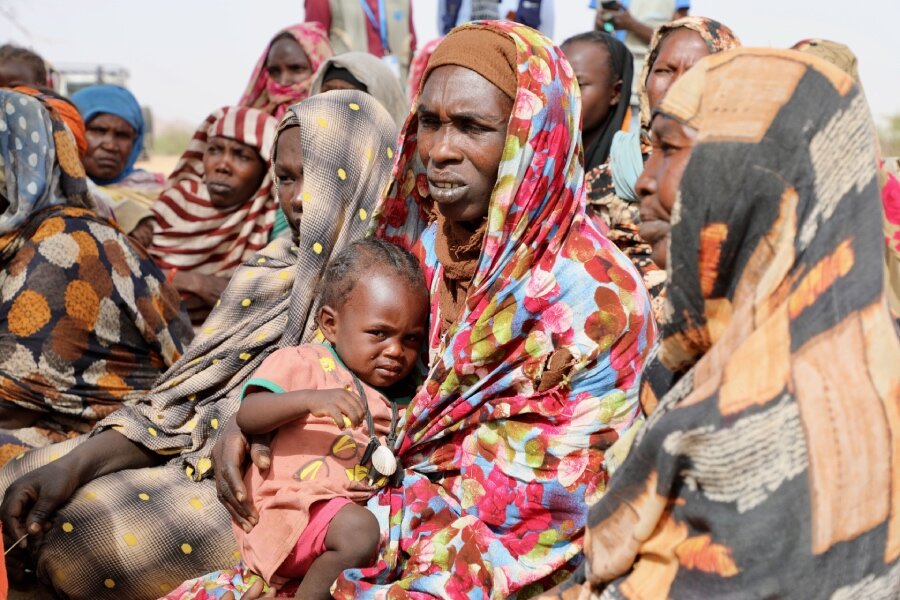The silent corners of Chad, a landlocked African nation, are currently resounding with the stories of despair, hope, and resilience. The war in Sudan, which erupted anew in April, has unleashed a human tidal wave, with Chad caught in its overwhelming surge. The impact on this already struggling nation is severe, and the world must take notice.
The scale of the crisis is both unprecedented and alarming. The United Nations Human Rights Council estimates that by the year’s end, around 600,000 refugees will have crossed into Chad from Sudan. This surge is on top of the over 400,000 individuals who’ve sought sanctuary since April. The situation is compounded by Chad’s previous refugee numbers, with the nation hosting nearly 600,000 refugees even before the recent conflicts in Sudan began.
Eastern Chad, in particular, is bearing the brunt of this influx. Towns like Adré in Ouaddai province, which previously boasted a population of roughly 52,000, are now homes to more than 207,000 refugees. The social fabric of such areas is strained, with tents and makeshift shelters dotting the landscape. Resources are stretched thin, and this has resulted in a catastrophic situation affecting almost every essential human need: from food and shelter to health and sanitation.
It’s not just about the numbers; the severity of conditions is heart-wrenching. In places like the Lycée refugee site, people are packed like sardines, awaiting relocation to formal camps. Here, the sights of crowded shelters made of branches and tarps are common. With the rainy season underway, these shelters, flooded and muddied, are breeding grounds for diseases. Families, sometimes more than a dozen individuals, share these spaces in direly unsanitary conditions.
Clean water, a fundamental human right, is a luxury. Families have access to a meagre five litters of water per person, a fraction of the recommended 15 litters per day. This severe shortage, combined with overcrowded conditions, raises the alarm bells for potential waterborne epidemics like cholera.
The situation isn’t just about refugees; it’s also about Chad’s capacity to deal with this crisis. Only 34% of the needed humanitarian funding has been received. Organizations like Action Against Hunger, operating in the eastern provinces of Ouaddai and Sila, have been vocal about the rapidly deteriorating crisis.
While international institutions are stepping in – the World Bank, for instance, has announced a $340 million aid package, of which $90 million is dedicated to addressing the refugee crisis – it’s clear that the need far outstrips the aid. Even with the World Bank’s previous commitment of over $235 million, the gaps in humanitarian aid are glaring.
But the concern extends beyond immediate humanitarian needs. Chad, one of the world’s poorest nations, is grappling with intensified demands on its natural resources due to the refugee influx. The compounded effects of weak harvests, climate change, and an escalating population hint at a bleak future marked by rising food insecurity.
This crisis, however, is more than just Chad’s to bear. It’s a stark reminder of the domino effects of conflict and the burden that neighboring nations, often ill-equipped themselves, have to shoulder. The international community must rally, not just with funds but with concerted efforts to resolve the root issues. The refugees, and Chad, need more than our sympathy; they need our action.
Image Credit: WFP/Jacques David




